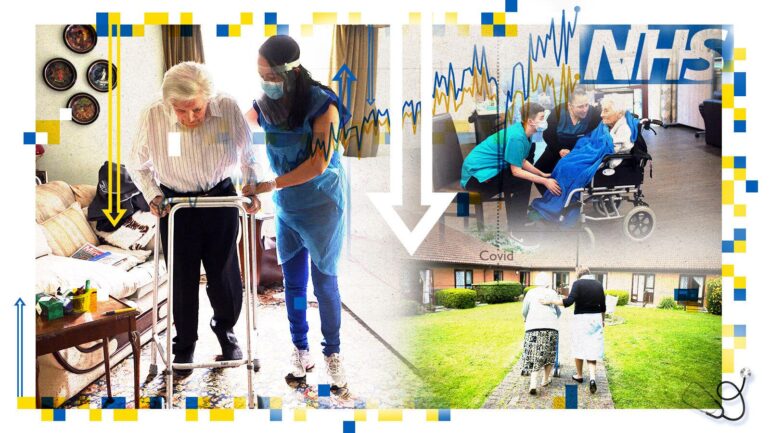TL;DR:
- Artificial intelligence pioneers training in the UK social care sector.
- Digital avatars, led by Cera, offer diverse skill instruction and multilingual welcome.
- Potential to train 20,000 carers annually to combat workforce shortages.
- Human touch remains vital; AI complements but doesn’t replace in-person training.
- Age UK sees AI as a supplement, not a substitute, for human guidance.
- Association of Directors of Adult Social Services advocates for varied training approaches.
- Minister Helen Whately hails AI’s potential to optimize efficiency and enhance caregiving.
Main AI News:
In a groundbreaking move set to transform the landscape of social care training, artificial intelligence (AI) has taken center stage in the United Kingdom’s efforts to address workforce shortages effectively. This pioneering initiative involves the utilization of digital avatars, representing real-life trainers, to onboard new staff members. The implications are far-reaching, potentially alleviating the urgent challenges posed by staffing deficits.
Leading the charge is Cera, a distinguished social care provider and healthtech company. Through their innovative approach, they have introduced avatars capable of welcoming new recruits in multiple languages and equipping them with essential skills. These encompass a diverse range of proficiencies, from linguistics to medical acumen, such as identifying signs of stroke. The audacious goal of training approximately 20,000 new carers annually, once the initiative gains nationwide traction, underscores the transformative potential of this venture.
The foundation of this endeavor rests upon the seamless integration of AI technology into the training process. Dr. Ben Maruthappu, the visionary founder and CEO of Cera, envisions a future where thousands of individuals receive instruction on a daily basis, transcending barriers of cost and accessibility. In a testament to the company’s commitment to preserving the human touch, Dr. Maruthappu emphasizes that the familiar countenance of the local Cera team remains an integral aspect of the training experience.
The pilot phase of this groundbreaking initiative commenced in London and the South East, marking a pivotal moment in the evolution of the social care sector. By the culmination of August, approximately 60 new carers are projected to have completed the training. A resounding response to the prevailing workforce shortage, this innovation arrives against the backdrop of a staggering 152,000 vacancies that persisted in the social care domain between April 2022 and March of the current year.
Beyond the pragmatic implications, the convergence of AI and social care resonates deeply with the industry’s ethos. Dr. Maruthappu lauds this convergence as a “positive and high-impact use” of AI, positioning it as an agent of progress during this critical juncture. With burgeoning demands on the healthcare system and the care sector, innovation emerges as the cornerstone of sustainable service delivery. As the population ages and waiting lists burgeon, the imperative to maximize efficiency becomes non-negotiable.
While AI is poised to revolutionize training paradigms, it cannot supplant the essence of compassionate human interaction that defines the social care realm. Dr. Maruthappu affirms the irreplaceable role of in-person care and hands-on training, particularly in tasks demanding physicality and tactile skills. This nuanced perspective highlights the symbiotic relationship between technology and tradition, underlining the potential for AI to complement rather than replace.
Age UK, a venerable advocate for the elderly, envisions AI as an augmentation to training, albeit one that cannot entirely replace in-person guidance. The profound significance of learning from experienced professionals and fostering human connections remains paramount. While the journey into the future involves embracing technology, the essence of social care, centered around human relationships, endures as the linchpin of quality service.
In echoing sentiments of balance, the Association of Directors of Adult Social Services (Adass) champions the integration of digital technology into training while recognizing the multifaceted nature of learning. Cathie Williams, joint chief executive of Adass, emphasizes that training methodologies should accommodate diverse learning styles. This approach, she suggests, will underpin the cultivation of high-quality care and support, which fundamentally hinges on human connections.
The prospect of AI revolutionizing social care is greeted with enthusiasm by social care minister Helen Whately. She champions the potential of AI and voice technologies, heralding a future where innovations such as voice-controlled virtual assistants merely scratch the surface. A future where technology optimizes the allocation of resources, enabling staff to devote more time to meaningful interactions and less to administrative tasks, emerges as a tantalizing possibility.
Conclusion:
The integration of artificial intelligence into social care training signifies a groundbreaking transformation for the industry. The introduction of avatars to emulate trainers has the potential to mitigate workforce shortages and elevate the efficiency of onboarding processes. While AI augments training, the indispensable value of human interaction and tactile skills remains pivotal. This innovation aligns with a broader market shift toward leveraging technology to enhance productivity and maintain a balance between technological advancements and human-centered caregiving.

